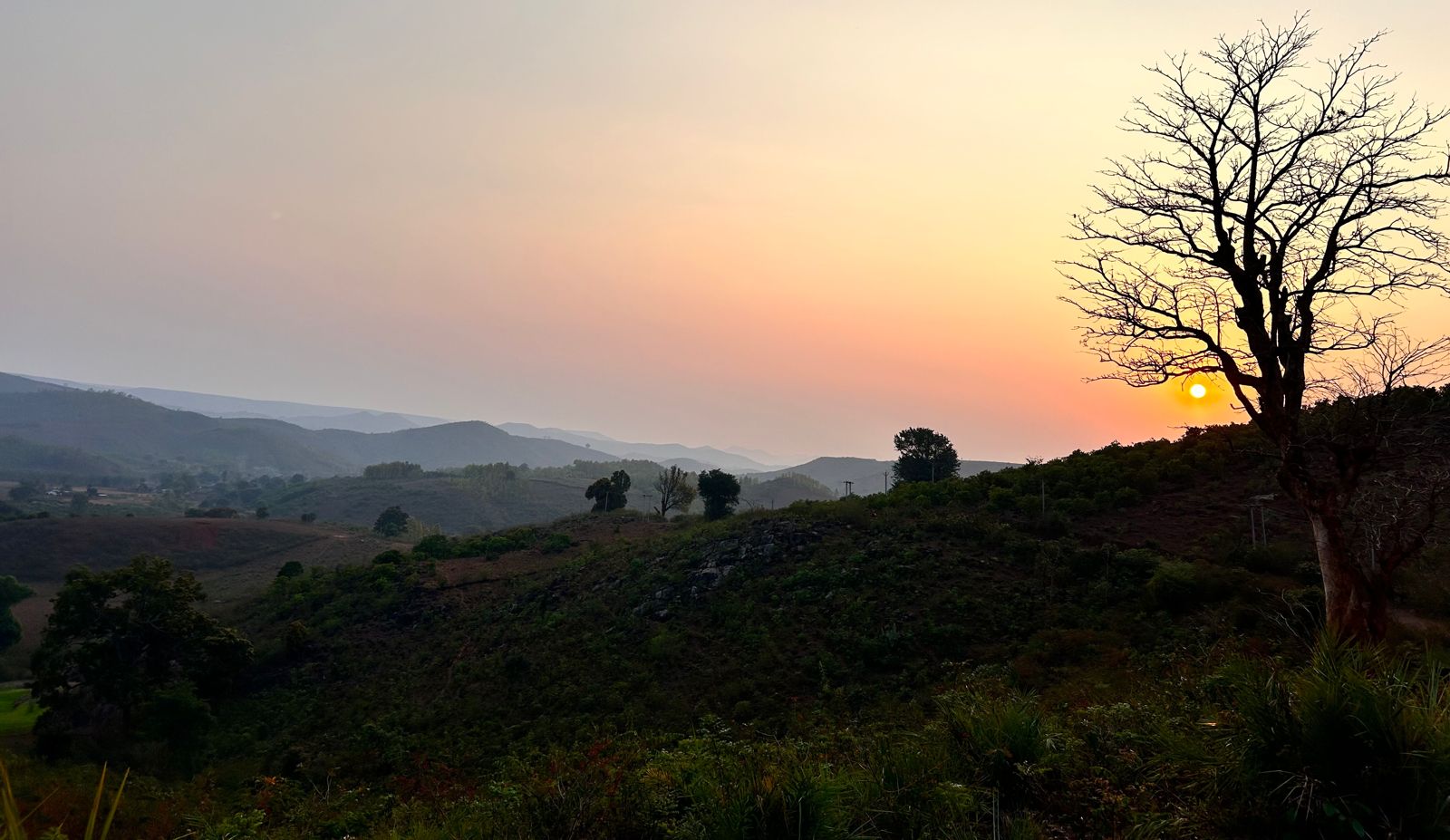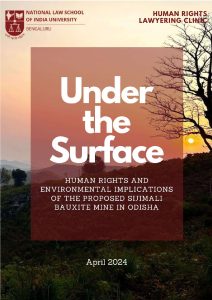Radhika Chitkara
May 10, 2024
Under the Surface: Human Rights and Environmental Implications of the Proposed Sijimali Bauxite Mine in Odisha
In March 2023, the Odisha state government issued a 50-year mining lease for a proposed bauxite mining project in the Sijimali hills of Rayagada and Kalahandi districts. Both these districts are Scheduled Areas under the Fifth Schedule of the Constitution. They are home to a predominantly adivasi population, with dry and moist deciduous forests, grasslands, and a rich floral and faunal biodiversity. Both districts have witnessed a decrease in forest cover over the past decade primarily on account of the mining of their rich bauxite reserves. The proposed Sijimali bauxite mine extends over an area of 1,549 hectares, which includes 699 hectares of forest land.
Between November 2023 and April 2024, the Human Rights Lawyering Clinic at the National Law School of India University, Bengaluru undertook a study of the human rights and environmental implications of the proposed project, culminating in a report titled Under the Surface: Human Rights and Environmental Implications of the proposed Sijimali Bauxite Mine in Odisha. This report investigates the compliance of the proposed project with human, fundamental and constitutional rights of adivasis and affected communities, as well as with key principles of environmental governance under domestic and international law.
Over this period, a team of NLSIU students tracked the progress of various legal clearance processes for the proposed project—specifically those pertaining to environmental and forest clearances under the Environmental Impact Assessment Notification 2006 and the Forest Conservation Act 1980. The team scrutinised project-related documents submitted by the project proponent and its affiliates to the relevant authorities, and tracked the action taken by these authorities, as available on the Parivesh website of the Ministry of Environment, Forests and Climate Change (MoEFCC). The documents include project proposals, the draft Environmental Impact Assessment (EIA) report, the Conservation Management Plan (CMP), minutes of meetings of relevant state bodies, reports of public hearings and gram sabha resolutions, among others. The claims and representations made in these documents were triangulated against independent reporting by news media, human rights and civil society organisations, as well as secondary research on the impact of bauxite mining across the world.
The report proceeds in two parts. Part I outlines the existing legal framework under domestic and international law under the reformed regulatory regime governing mining projects of this kind. This framework can serve as a valuable resource for researchers and civil society actors seeking to examine not only the Sijimali project but also any such proposed initiatives across the country. Part II reports on the anticipated human rights and environmental impacts of the proposed project in Sijimali and surrounding areas.
The study finds serious violations of the fundamental, constitutional, and human rights of adivasis and other affected communities under the Fifth Schedule of the Indian Constitution, PESA, Forest Rights Act (FRA), LARR Act and the United Nations Declaration on the Rights of Indigenous Peoples (UNDRIP). Specifically, the proposed project violates prohibitions against the alienation of land in Scheduled Areas to non-adivasis, and underreports the scale of potential displacement and dispossession of affected communities from their lands and forest resources. This is compounded by egregious violations of the principle of free, prior and informed consent. Public hearings under the environmental clearance process were conducted following mass arrests, illegal detentions, police raids and disruptions of assemblies of affected communities, creating an environment of fear, duress and intimidation. The proposed project also threatens long-term harm to the rights to health, environment and development among affected communities. The draft EIA report fails to mention potential long-term health impacts on the affected communities due to air and water pollution, such as risks of serious respiratory harm or liver damage. To the contrary, it claims that the proposed project will be beneficial for the health of affected communities.
The Human Rights Lawyering Clinic report also finds grave violations of domestically and internationally recognised principles of environmental governance, particularly the precautionary principle. Under the precautionary principle and public trust doctrine, the State bears the obligation of preserving and protecting land and natural resources in its capacity as a trustee for the public, by taking preventive measures against environmental harm and degradation.
The proposed project is likely to cause permanent, irreparable and irreversible harm to the forests, land and biodiversity of the mining site and neighbouring areas. This includes large-scale deforestation, permanent loss of several plant and animal endangered species, with serious threats of water depletion and contamination. The draft EIA report and state authorities neglect the potential for increased human-animal conflict occasioned due to a loss of habitat for animal species, particularly given the close proximity between the project site and the Karlapat Wildlife Sanctuary. Moreover, state authorities have shifted the burden of proof of harms on the affected communities instead of the entity proposing to undertake environmentally harmful practices.
The report concludes with recommendations aimed at upholding the rights to land, forest and autonomy of adivasis and affected communities, particularly their right to free, prior and informed consent. This section calls upon the relevant state authorities to abide by the precautionary principle in text and substance. It also urges researchers and civil society actors to undertake independent scientific evaluations of the potential impact of the proposed project.
The report can be accessed here, and the executive summary here.
About the Author
Radhika Chitkara is Assistant Professor (Law) at NLSIU, Bengaluru, and leads the Human Rights Lawyering Clinic.


